
Name
Classifications and Characteristics
| Plant Division | Angiosperms (Flowering Seed Plants) |
|---|---|
| Plant Growth Form | Tree |
| Lifespan (in Singapore) | Perennial |
| Mode of Nutrition | Autotrophic |
Biogeography
| Native Distribution | Singapore, Sumatra, Borneo, Peninsular Malaysia, and the Philippines. |
|---|---|
| Native Habitat | Terrestrial (Primary Rainforest, Secondary Rainforest) |
| Preferred Climate Zone | Tropical |
| Local Conservation Status | Native to Singapore (Endangered (EN)) |
Description and Ethnobotany
| Growth Form | This large tree grows up to 50 m tall. It has a straight, cylindrical bole branches, and a diameter of up to 136 cm. It has lighter-coloured boles when it is younger which turns yellowish brown and has dots of medium-sized lenticels when matures. The stipules are about 15 cm long with green or red tinge when fresh, covered with pale soft hair on the outside. |
|---|---|
| Foliage | The leaves are broadly ovate or elliptic, measuring about 22cm x 15 cm, thin, with black petioles. |
| Fruit | Fruits are ovoid, 5 cm x 2.5 cm with sharp ridges on the upper half, having two wings of about 20 cm x 4 cm long. |
| Ethnobotanical Uses | Timber & Products: The wood is used for construction, carpentry, panelling, joinery, flooring, pallets, veneer and plywood. |
Fauna, Pollination and Dispersal
| Seed or Spore Dispersal | Abiotic |
|---|
Plant Care and Propagation
| Light Preference | Full Sun |
|---|---|
| Water Preference | Moderate Water |
| Plant Growth Rate | Moderate |
| Propagation Method | Seed |
Foliar
| Foliage Retention | Evergreen |
|---|---|
| Mature Foliage Colour(s) | Green |
| Foliar Attachment to Stem | Petiolate |
| Foliar Shape(s) | Non-Palm Foliage (Ovate, Elliptical) |
Non - Foliar and Storage
| Trunk Type (Non Palm) | Cylindrical |
|---|
Fruit, Seed and Spore
| Fruit Classification | Simple Fruit |
|---|
Image Repository
Others
| Master ID | 29068 |
|---|---|
| Species ID | 3385 |
| Flora Disclaimer | The information in this website has been compiled from reliable sources, such as reference works on medicinal plants. It is not a substitute for medical advice or treatment and NParks does not purport to provide any medical advice. Readers should always consult his/her physician before using or consuming a plant for medicinal purposes. |

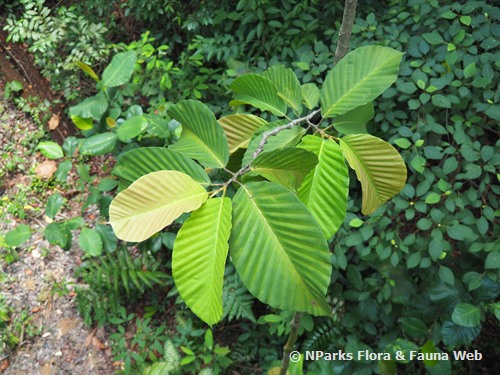
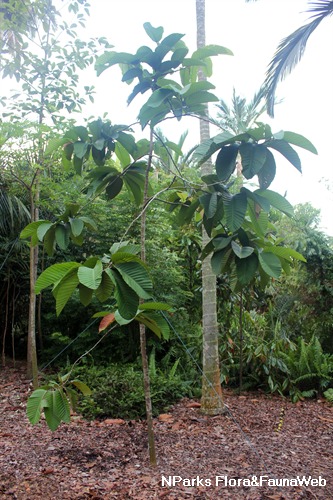
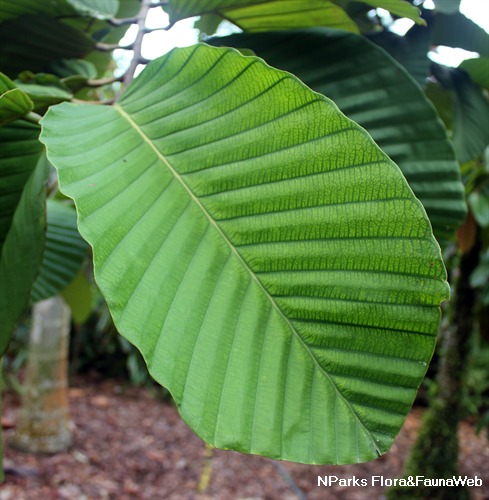
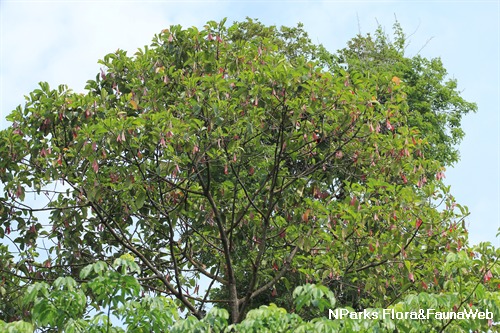
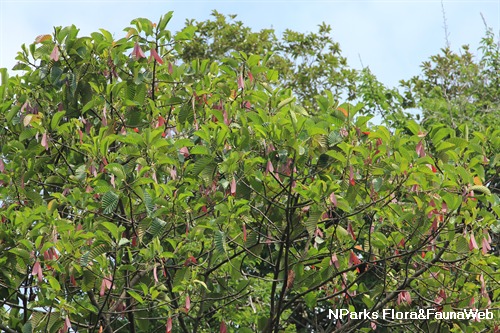
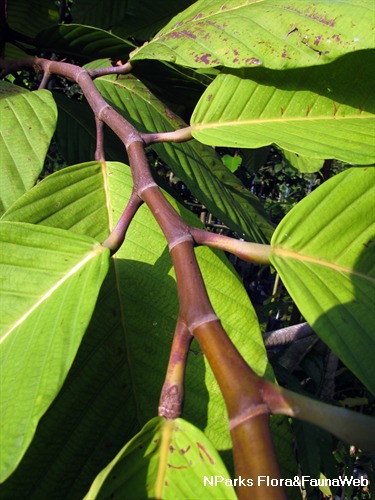
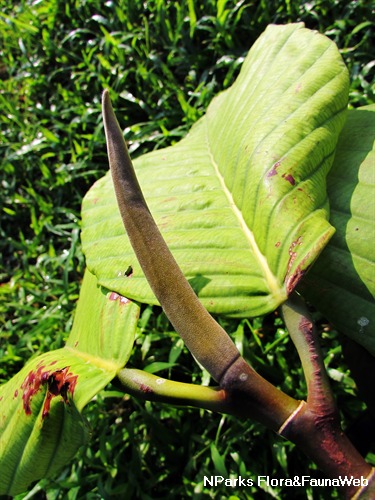
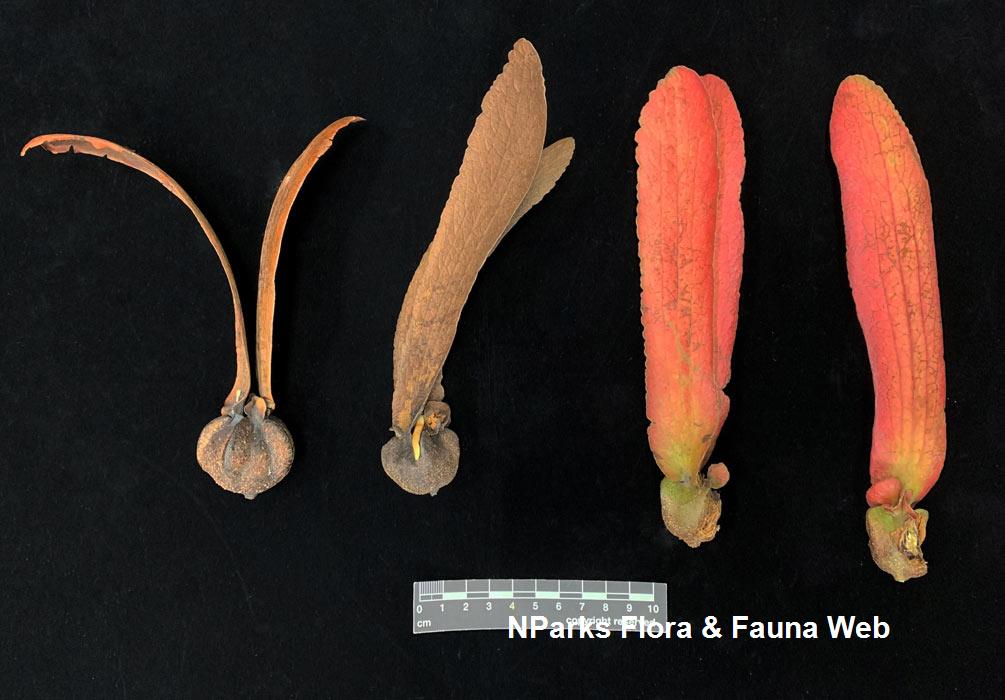
_lowres.jpg)